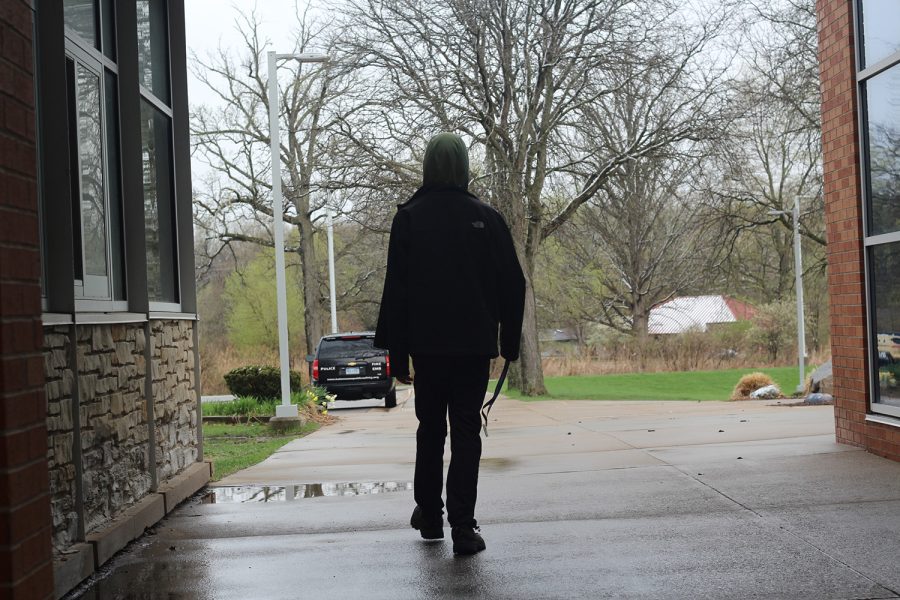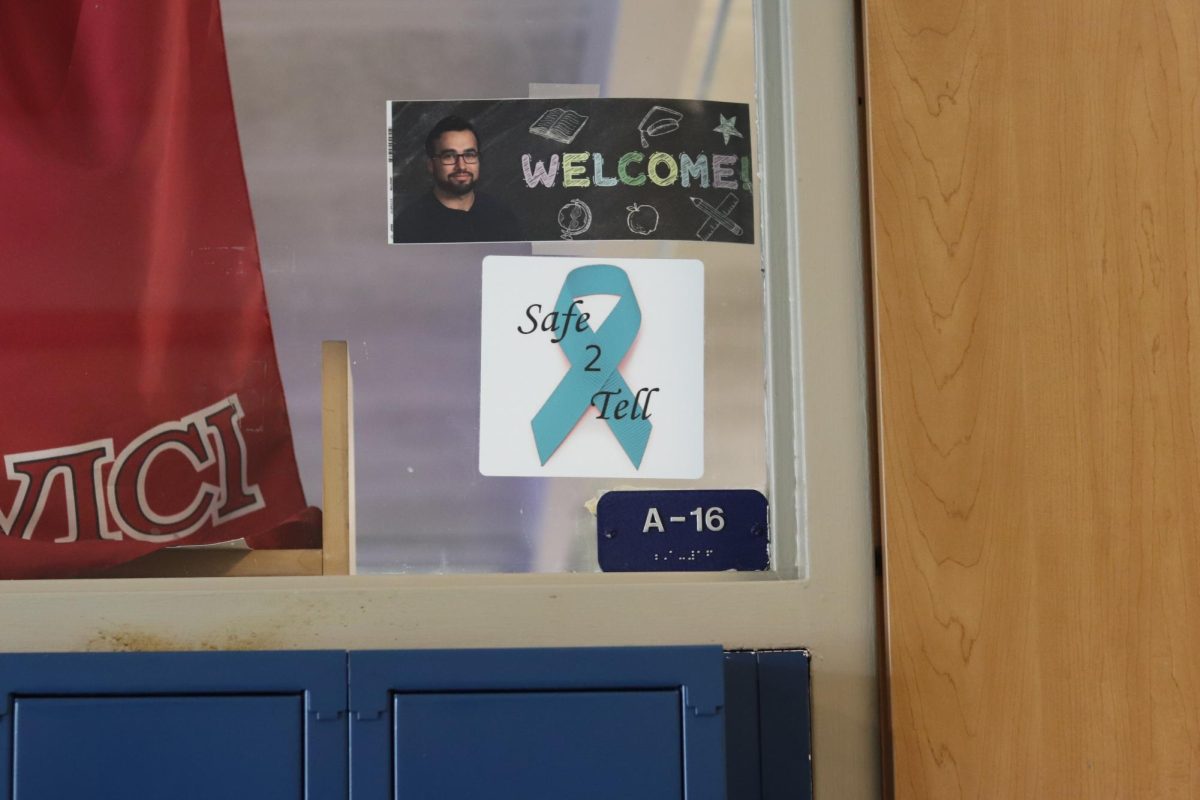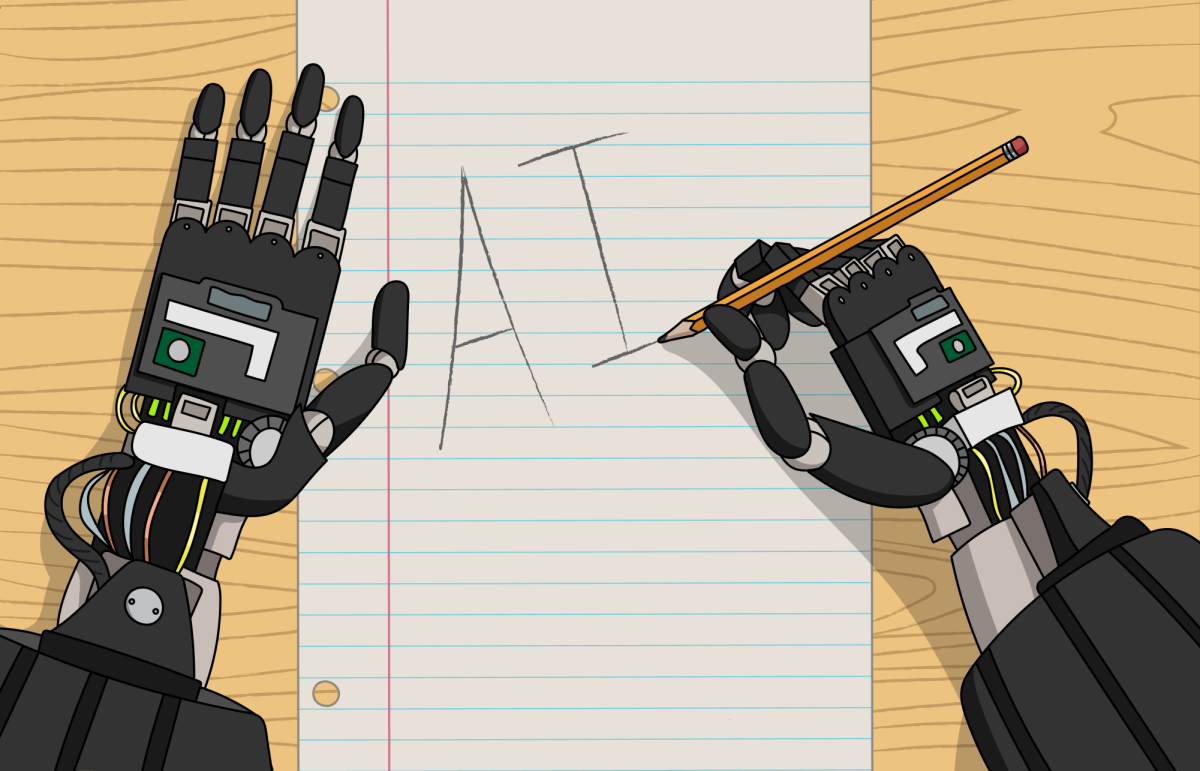Loy Norrix teachers describe the negative effects of skipping on both staff and students
Credit: Nia Moncrief
Student skips class during 3rd hour. Many student leave to skip class out of the lower K wing doors.
April 24, 2023
For most students, the mention of skipping class wouldn’t be anything new.
The number of students missing multiple weeks of school or just having unexcused absences is climbing. In Grand Rapids 91 thousand students have missed multiple weeks of school.
These students that frequently skip class may be unaware of the effects it has on their futures, along with the mental health of their teachers.
“It’s natural for students to skip,” said English 11 and debate teacher Colby Cuppernull, “but if you’re missing the amount of class that some students at Loy Norrix are missing, I can’t even come up with words to describe how negatively it’s going to affect your future.”
Cuppernull works the full school week along with getting lesson planning and grading done over the weekend. He describes Sunday as another work day. Cuppernull finds himself conflicted when it comes to students who miss class regularly. He works hard to develop his lesson for his students, but he also considers how class may be if some students did come to class.
“There’s a part of me that thinks if a student is going to be very disruptive then go ahead and skip class,” said Cuppernull, “but ultimately it makes me feel burnt out, like what I’m doing doesn’t matter.”
According to the June 2022 Gallup Poll K-12 workers have the highest burnout rate of all industries in the United States. Forty-four percent of K-12 education workers feel burnt out at work. Compared to other industries such as health care, manufacturing, and finance, K-12 has a significant percentage increase in the number of workers feeling burnt out.
When it comes to skipping, students are likely not considering the effect their actions have on teachers.
“Usually I would skip class to avoid doing work,” freshman Tiara Boyd said. “If I wasn’t in the mood for a class I would just skip it.”
Boyd frequently skipped class in the past and explained how there was little to no punishment, if she got caught at all. She did however recall the negatives that came with skipping, such as the impact it had on her grades. Just because there aren’t disciplinary consequences, does not mean there won’t be any at all.
“It will backfire on you,” Boyd said.
Dealing with the skipping issue at Loy Norrix is not just a one-person job. Multiple people are affected: the students that skip, the teachers whose classes they skip and the students who actually attend class.
“It’s devastating to my ability to do my job in the most effective way,” said Cuppernull. “It hurts the students who are skipping, it hurts me, and most of all it hurts the students who do their job.”
The students coming to class everyday and getting their work done can be affected by their peers skipping class. While the teachers try to get their students who aren’t getting work done caught up, students who are where they need to be get held back.
Staff and students can discourage others from skipping class, whether it’s just by laying out more punishments or by telling your friends not to skip with you. It’s a whole team effort.











owen • May 4, 2023 at 11:17 am
ender the menace